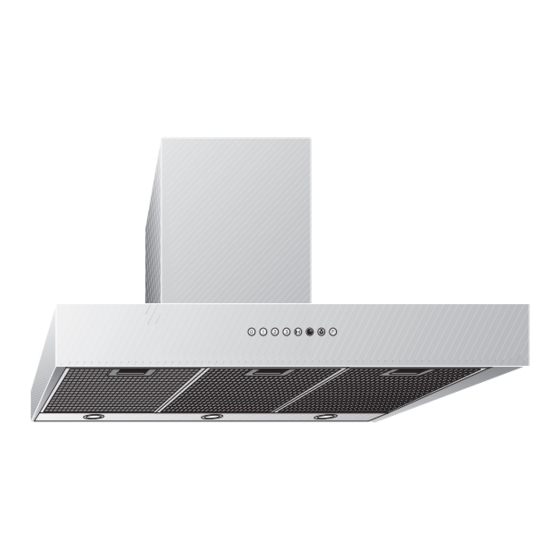Gaggenau AH 530-720 Manual - Page 3
Browse online or download pdf Manual for Ventilation Hood Gaggenau AH 530-720. Gaggenau AH 530-720 18 pages. Gaggenau ventilation hood preface ah 530-790, ah 530-720
Also for Gaggenau AH 530-720: Operating And Assembly Instructions Manual (18 pages), Operating And Assembly Instructions Manual (18 pages)

Safety notes
Read And Save These Instructions.
WARNING - TO REDUCE THE RISK OF FIRE,
ELECTRIC SHOCK, OR INJURY TO PERSONS,
OBSERVE THE FOLLOWING:
a.) Use this unit only in the manner intended by the
manufacturer. If you have questions, contact
the manufacturer.
b.) Before servicing or cleaning unit, switch power
off at service panel and lock the service
disconnecting means to prevent power from
being switched on accidentally. When the
service disconnecting means cannot be locked,
securely fasten a prominent warning device,
such as a tag, to the service panel.
CAUTION:
FOR GENERAL VENTILATION USE ONLY. DO NOT
USE TO EXHAUST HAZARDOUS OR EXPLOSIVE
MATERIALS AND VAPORS.
WARNING - TO REDUCE THE RISK OF A
RANGE TOP GREASE FIRE.
a.) Never leave surface units unattended at high
settings. Boilovers cause smoking and greasy
spillovers that may ignite. Heat oils slowly on low
or medium settings.
b.) Always turn hood ON when cooking at high heat
or when cooking flaming foods.
c.) Clean ventilating fans frequently. Grease should
not be allowed to accumulate on fan or filter.
d.) Use proper pan size. Always use cookware
appropriate for the size of the surface element.
All manuals and user guides at all-guides.com
WARNING - TO REDUCE THE RISK OF INJURY
TO PERSONS IN THE EVENT OF A RANGE
TOP GREASE FIRE, OBSERVE THE
FOLLOWING:
a.) SMOTHER FLAMES with a close-fitting lid,
cookie sheet, or metal tray, then turn off the
burner. BE CAREFUL TO PREVENT BURNS. If the
flames do not go out immediately, EVACUATE
AND CALL THE FIRE DEPARTMENT.
b.) NEVER PICK UP A FLAMING PAN - You may be
burned.
c.) DO NOT USE WATER, including wet dishcloth or
towels - a violent steam explosion will result.
d.) Use an extinguisher ONLY if:
1. You know you have Class ABC extinguisher,
and you already know how to operate it.
2. The fire is small and contained in the area
where it started.
3. The fire department is being called.
4. You can fight the fire with your back to an exit.
3
